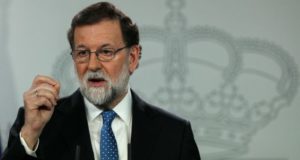‘Plague’ On sale now £9.99
Tags
Follow J.J.Anderson on Facebook
Follow J.J.Anderson on Pinterest
Archives
-
Recent Posts
Categories
http://www.thestorybazaar.com/rss.xml
Social
-
Privacy & Cookies: This site uses cookies. By continuing to use this website, you agree to their use.
To find out more, including how to control cookies, see here: Cookie Policy
A feast for the imagination


 RSS – Posts
RSS – Posts
What happened after that?
Regular followers of this blog may recall articles documenting the various Spanish national elections and the emergence of Podemos, a ‘different’ sort of party, as a political force ( see What happened next? or A New Sort of Politics? ). Sanchez, leader of PSOE, was temporarily ousted by Party barons, most specifically his rival Susana Diaz, in what he described as a ‘palace coup’. He resigned on October 1st, 2016. In party primary elections held in May 2017, he stood again, as did Diaz, and was returned as PSOE leader with over 50% of the vote.
Meanwhile, Mariano Rajoy, leader of the right-wing Partido Popular was Prime Minister, leading a minority government increasingly mired in corruption scandals. On Thursday 24th May a judge in the Spanish national court settled the largest of them, begun in 2009, by sentencing Luis Bárcenas, former Treasurer of the PP, to 33 years in prison, with a fine of €44m.. Alongside him, twenty-eight other businessmen and politicians received over 300 years worth of sentences between them, including a former PP Health Minister and her husband. The PP was fined €245,000, convicted of operating a slush fund – something which Rajoy specifically denied the existence of in his court appearance in the case. There are other court cases pending, only recently the police detained another former minister, Eduardo Zaplana, in an entirely separate money laundering and corruption case in Valencia.
Bárcenas, former Treasurer of the PP, to 33 years in prison, with a fine of €44m.. Alongside him, twenty-eight other businessmen and politicians received over 300 years worth of sentences between them, including a former PP Health Minister and her husband. The PP was fined €245,000, convicted of operating a slush fund – something which Rajoy specifically denied the existence of in his court appearance in the case. There are other court cases pending, only recently the police detained another former minister, Eduardo Zaplana, in an entirely separate money laundering and corruption case in Valencia.
PSOE immediately began seeking support from the smaller parties and Podemos for a vote of censure, with the latter supporting the Socialists. Rajoy had either to resign ( and at least allow his deputy PM to take over ) or risk the vote. He chose the latter and lost, subsequently resigning, but having to yield his post to Sanchez. With the support of the Basque and Catalan parties Sanchez is now set to become Prime Minister. The irony will not be lost in Catalonia, where Rajoy, an implacable and, many would say, tyrannical and brutal, opponent of Catalan separatism is widely seen as the instigator of a crisis which he subsequently mishandled ( see Homage to Catalonia ).
Nonetheless, holding a government together will not be easy for Sanchez, especially when Ciudadanos, the centre-right party which has done well out of the anti-separatist ( some would say anti-Catalan ) feeling in Spain, will be on his case if he seems to be giving too much ground. Positions are more entrenched and compromise more difficult than this time last year and it won’t be easy, but it stands a better chance now than before. Sanchez, by the way, isn’t even a sitting MP – one doesn’t have to be to be PM, just a Party leader.
Rajoy leaves a government which has overseen deep austerity measures, with youth unemployment in places like Andalucia up to 50% and inequality growing. Spain is, however, now the fourth largest economy in the EU¹, overtaking Italy, which has troubles of its own. At least Spain is pro EU and, largely, pro Euro. I hope Sanchez survives to do some good, at least until elections are called.
¹OECD (some indicators).
If you enjoyed this article you might like to read others about Spanish politics Hello, Prime Minister, we need to talk…... Sunrise and the roundabout? Five Days and Counting Who rules Spain, erm…..? As You Were
Share this:
Posted on 2nd June 2018 by juliej Leave a comment
This entry was posted in From a Foreign Field, Political comment and tagged Foreign field, Political comment. Bookmark the permalink.